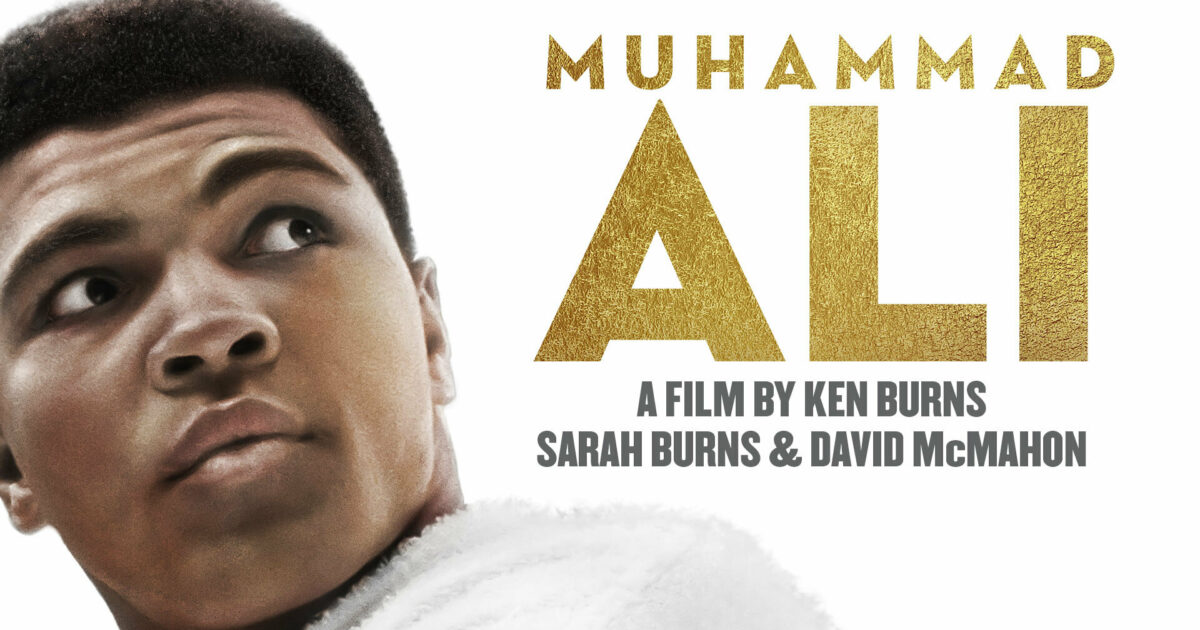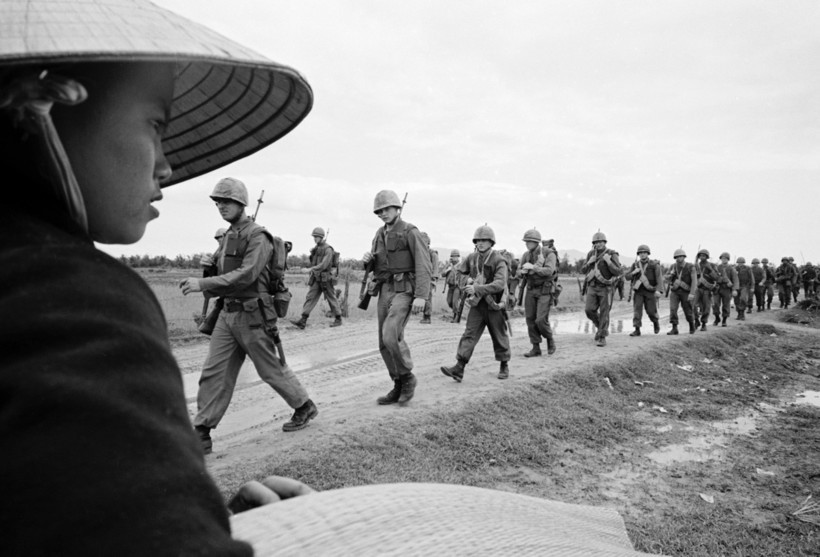A documentary is always judged first by its subject. People will love a slapdash doc about a subject they’re interested in more than a skillfully put together documentary about a boring or obscure subject. Judging from the sheer number of documentaries made about him in the last 50 years or so, no one is more interesting than Muhammad Ali.
I’m not a sports fan, but one of my all time favorite documentaries is When We Were Kings, the 1996 Best Documentary Oscar winner about the 1974 fight between Ali and George Foreman in Kinshasa, in what is now the Democratic Republic of Congo. But that’s the tip of the Ali iceberg. Just last year, documenter Antoine Fuqua dropped What’s My Name? Muhammad Ali.
Now, Ken Burns, a contender to the title of The Greatest when it comes to documentaries (television, anyway) takes his swing with a four-part, eight-hour PBS miniseries called simply Muhammad Ali. It is predictably Burnsian, with all of the strengths that implies, but fewer of the weaknesses.
Burns’ strengths are access, thoroughness, and clarity. The man literally has his own nonprofit foundation dedicated solely to financing his docs, so money to license archival footage is not an issue. After burnishing his reputation for decades as the filmmaker of record for American history, no one is going to say no to talking to him on camera. And Burns’ completely transparent filmmaking, a descendant of the high BBC style seen in epic documents like The World at War, only looks easy because it’s designed to be digestible. It is in fact extraordinarily difficult to pull off, but time and again, Burns does it with low-key panache.
His signature move of isolating details on still photos and then slowly pulling out to reveal the entire image is deployed to great effect — the key is to find the most interesting face in the picture, and start there. Nine times out of 10, that’s Ali. Inspired by wrester Gorgeous George, he bragged about how beautiful he was, and he was right. Young Ali was startlingly good looking, in better shape than just about anyone on the planet, and dripping with charisma. During his gold medal-winning stint at the 1960 Olympics, a journalist described him as “the Mayor of Olympic Village.”
Coverage just doesn’t get more thorough than devoting eight hours of prime time television to your subject. Ali was one of the most photographed and filmed people in history, so there’s plenty of material to work with. One of Burns’ best decisions is to let the fights play out much longer than a two-hour doc would allow. From the first time he fought as a teenager, Ali said he would become the greatest boxer of all time, and the proof is in this fight footage. Especially during the second episode, (also entitled “What’s My Name?”) Ali looks superhuman in the ring. Burns sets up the easy cynicism of the boxing press and announcers, only to knock it down when he lets you hear the awe slip into their voices while they watch Ali methodically take apart opponents who were supposed to beat him.
The length allows Burns to avoid pure hagiography by diving deep into subjects like Ali’s involvement with the Nation of Islam. In what was the most shocking moment of the entire doc for me, personally, Ali praises segregationist governor George Wallace, and says he thinks Black people and white people shouldn’t mix. Burns presents the moment in an extended clip, so there’s no doubt that the director wasn’t taking his subject out of context. Ali meant what he said at that moment, but Burns also shows Ali’s moral evolution and growth as the barely educated Louisville kid sees more of the world and his understanding deepens.
His rhetorical style of trash talking would go on to inspire everyone from Michael Jordan to Donald Trump — which means he was also responsible for bringing a lot of negativity into the world, as people without his smarts and talent tried to emulate him. Trolls today wish they had Ali’s insight into what will get a rise out of his opponents.
Burns’ weakness is that he’s long-winded to the point of being boring. But here he is saved by his endlessly fascinating subject. Ali was many things, but he was never boring. And that makes Muhammad Ali essential viewing.

